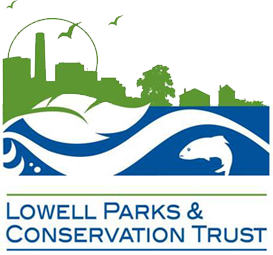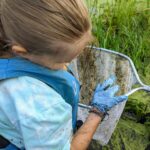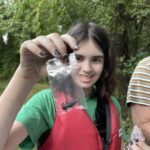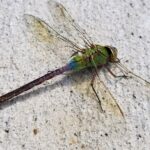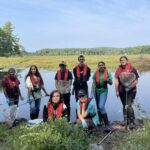Dragonfly Mercury Project – community science
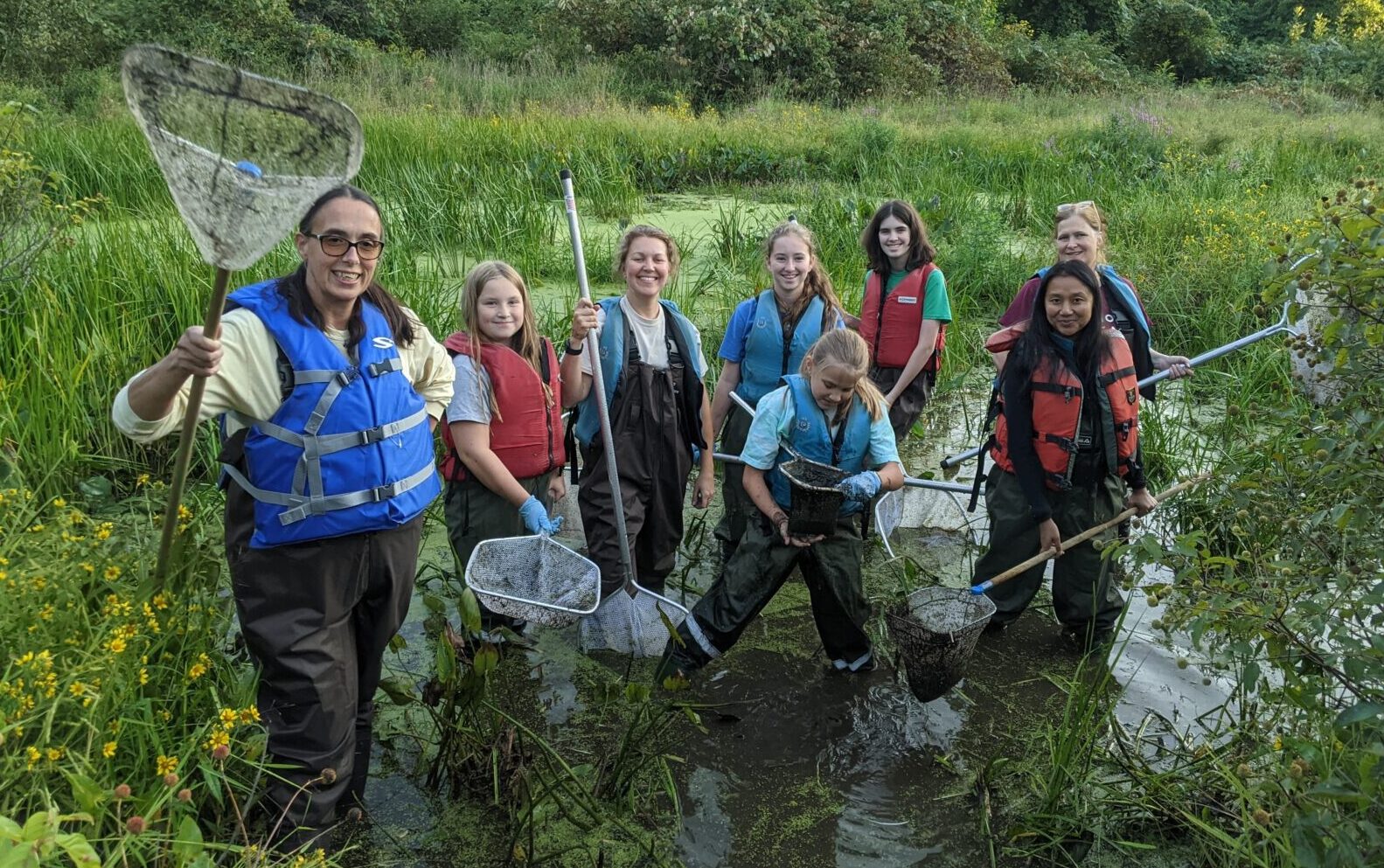
Lowell Parks & Conservation Trust volunteers contribute to community science with the Dragonfly Mercury Project.
Community scientists around the country are working with national parks and other land managers to collect dragonfly larvae, juvenile dragonflies that live in the water before they molt and fly away. Dragonfly larvae are effective indicators of the risk of mercury contamination in rivers, streams, lakes, ponds, and wetlands. Fish eat dragonfly larvae and people eat fish, which is how mercury can go from water pollution into the food chain.
LP&CT volunteers have been contributing to research in the Merrimack River watershed since 2021, along other local organizations, including the Lowell National Historical Park, the Tsongas Industrial History Center, and the Appalachian Mountain Club. By participating in this community science project, volunteers and students are able to:
- Practice real-world science skills and help build our understanding of the world around us.
- Connect to natural spaces and learn how mercury affects food webs with hands-on science in local waters.
- Use the data to explain to your community, family, and decision-makers how mercury could be an issue where you live.
- Help protect the ecosystem of the Merrimack River Watershed.
Mostly recently, the Merrimack Dragonfly Mercury Project (DMP) has created a bilingual storymap to connect Lowell’s history to the research along with an interactive map. Both versions can be found here: https://bit.ly/Merrimack-DMP
For more info visit: go.nps.gov/dragonflymercury. Please contact us if you’re interesting in helping with this research!
- Lowell youth learning about dragonflies
- Science is fun!
- Examining a dragonfly larva
- Dragonfly larva collection
- Adult dragonfly
- EYTF sampling for larva
- Students identifying larva
- Sorting dragonfly larvae
- EYTF – successful sampling!
